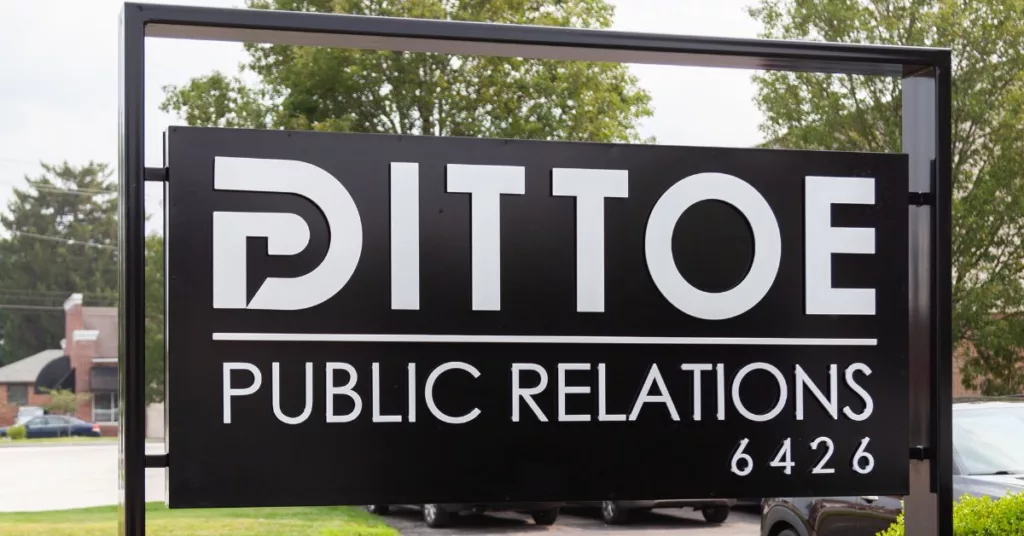Hiring a PR firm is a significant decision for your business, and it’s important to choose one that aligns with your goals and values. But it can be difficult to drill down and decipher actual differences between agencies. After all, most of them provide the same types of services, right? Perhaps, but most agencies have their own “way” of doing things, and you should understand each one’s approach.
Here are some questions you can ask during the sales process to identify differentiating factors between agencies and find the right fit for your company:
1. What is the full scope of services that the agency provides?
When selecting a PR partner, it’s important to understand the actual services an agency provides. “PR” can mean many different things, and you want to make sure an agency’s capabilities align with your goals and needs. For example, if you’re a CPG brand, you most likely want to hire an agency that can lead or support your affiliate marketing efforts, which requires a different strategy and approach from traditional media relations. Or, if you’re a B2B organization looking to elevate the voices of your executives, you’ll want a PR partner who provides media training services, secures speaking engagements and provides executive LinkedIn support.
Another thing to consider: Some agencies are “full-service,” meaning that they provide marketing, advertising and creative services in addition to PR services. PR agencies specialize in public relations and have deep expertise in media relations, thought leadership, reputation management, crisis communication and other PR-specific services. They will have established relationships with journalists and media outlets, which can be valuable for securing media coverage. On the other hand, full-service agencies may spread their expertise across multiple disciplines, which could result in less specialized PR services.
Questions to ask:
- What is your level of engagement with affiliate marketing initiatives?
- What services do you specialize in?
- How important is media relations to your client strategies?
2. What is your experience and track record for clients similar to ours?
When pitching the media, there are no guarantees that outlets will cover your business. So how can you really know if an agency will have success in securing earned media and thought leadership opportunities for you? Ask about their relevant experience:
- Have you worked with other clients in our industry?
- How familiar are you with our target audiences?
- Have you secured coverage in the same media publications and outlets that we’d like to be featured in?
Ask for examples of successful PR campaigns they have executed for similar companies. Case studies and client reports will provide clear examples of the kind of results the agency can secure for clients. Take it a step further and ask for client testimonials or referrals, as these will paint a fuller picture of what it would be like to work with the firm, from both a results and relationship perspective.
3. Who will I actually work with at the agency?
You’ve hit it off with your initial point of contact at the agency and love everything you’re hearing, but you want to know what an actual working relationship will look and feel like. This is important because a PR partner is responsible for crafting and conveying compelling narratives for your brand to your target audiences. Beyond media relations, they can lead reputation management and crisis communications efforts in challenging times, so it is critical that you know who you’re working with and choose a partner you trust to lead your company’s communications efforts through the good and bad times.
Questions to ask:
- Who will be managing my account and what experience do they have?
- Will we have a dedicated account team or just one main point of contact?
- Does the agency have in-house specialists, such as copywriters, graphic designers and social media experts to support PR initiatives?
4. What do your client communications and reporting entail?
It’s important to understand an agency’s communications style and frequency at the onset of a partnership so you have clear expectations of when and how the agency will provide you with updates. This will also give you an idea of how much of your own time this engagement will require. Remember: Hiring a PR firm will take a lot of work off your plate and take your communications efforts to new heights, but it will require time on your end to provide the agency with the information they need to do their jobs.
Questions to ask:
- How often will the agency communicate with us?
- Will you set recurring status meetings with us?
- What types of updates will be shared in these meetings?
Note: Some agencies will set somewhat strict boundaries around meetings and may even invoice you for any additional meetings or phone calls that take place while others have a more flexible approach and will set up or take as many calls as needed to get the information they need to do their job.
In regards to reporting, be sure to ask how often you will receive updates and reports on the progress of PR campaigns:
- Will you develop and share monthly or quarterly reports?
- Do you monitor and share media coverage in real time as it runs?
- What metrics do you track to measure success?
5. What does success look like?
Think about what a successful PR partnership looks like to you and your company. Odds are, it’s probably not all about KPIs and analytics like impressions, ad values and share of voice, and more about whether the work the agency is doing is actually moving the needle and resulting in real business outcomes. Whether it’s gaining new customers, increasing revenue, attracting talent or something else, a PR agency should know and understand your overall business goals and objectives and ensure their communications strategies are driving tangible results for your brand.
Questions to ask:
- How do you align your PR efforts with the overall business objectives of your clients?
- How do you determine whether a PR campaign was successful?
- How do you demonstrate the ROI of your services?
6. How much do you cost?
Knowing an agency’s pricing model allows you to compare different agencies more accurately. Freelancers and independent contractors will most likely come in at a lower price point than an established agency, whereas a large, NYC agency may be more expensive than a small Midwest firm. What makes sense for one company may not work for another based on their needs and budget.
Questions to ask:
- Do you work on a monthly retainer fee model or billable hours?
- Are you flexible in your pricing models?
- What services are included in your fees?
- Are there any hidden fees or hidden charges, such as:
- Hourly rates for services outside of the scope?
- Third-party vendor costs?
- Technology or software costs?
7. Do our values and culture align?
And, finally, you should actually like these people! You will most likely meet with your PR firm several times a month and communicate with them via email, Slack, phone calls and texts throughout the week, so it’s important that the agency’s culture and values align with yours.
Questions to ask:
- What values does your agency prioritize?
- What is the company culture like inside the agency?
- What is your employee retention rate?
- Are you receiving workplace awards and recognition?
- How will you ensure transparency and collaboration throughout the partnership?
By asking these questions, you’ll gain valuable insights into each PR firm’s capabilities, approach and compatibility with your company’s needs and culture. This will help you make a well-informed decision when selecting the right agency for your PR efforts.
Have more questions? We’re happy to connect and show you what a partnership with Dittoe PR looks like. Email Lauryn Keegan at la****@******pr.com.







0 Comments